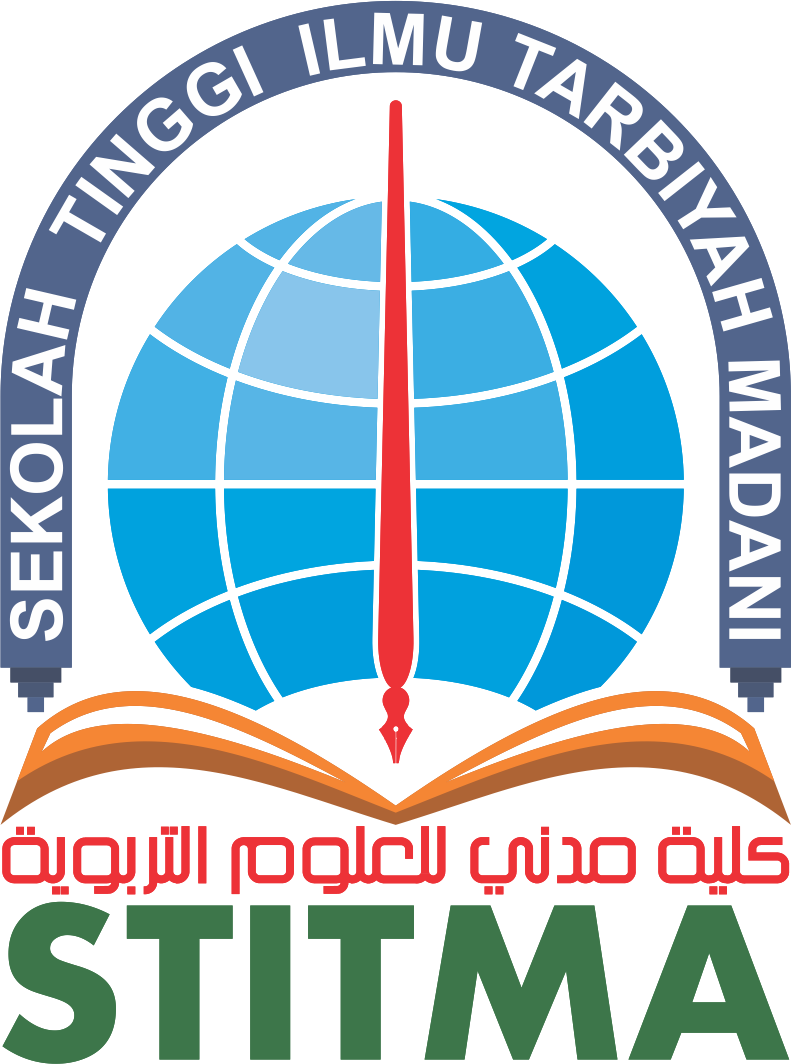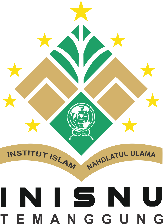Punishment and reward in islamic education: Implementation at ma hidayatus subban
DOI:
https://doi.org/10.59944/jipsi.v4i1.437Keywords:
Reward and Punishment, Islamic Education, Positive Student BehaviorAbstract
This research is motivated by a discrepancy between the ideal principles of Islam and field practices, where rewards and punishments are often applied mechanistically, ineducatively, and without considering students' psychological contexts. Using a descriptive qualitative approach and a case study method, data were collected through in-depth interviews, participatory observation, and documentation. The findings show that the implementation of reward and punishment at MA Hidayatus Subban is carried out regularly and relatively systematically. Rewards are given in both material and symbolic-spiritual forms, such as praise, certificates, and prayers, which have proven effective in enhancing motivation and fostering positive student behavior. Punishments, on the other hand, are applied in an educative manner, including advice, reflective assignments, and familial approaches aimed at developing moral awareness. However, the study also found inconsistencies among teachers in applying reward and punishment, leading to perceptions of injustice among students. The study concludes that the effectiveness of reward and punishment in Islamic education is greatly influenced by teachers’ understanding of spiritual values, sensitivity to students’ psychological conditions, and strong institutional support from the school principal and parental involvement. Rewards and punishments should not be treated merely as technical instruments of classroom management but must be grounded in an educational awareness rooted in Islamic values such as justice, compassion, responsibility, and self-awareness. When applied fairly, proportionally, and contextually—in alignment with the goals of Islamic education within the framework of maqashid al-shariah—educational institutions are expected to shape students who are not only behaviorally compliant but also possess strong moral and spiritual consciousness. Proper implementation of these methods impacts not only student discipline but also serves as a fundamental
References
Al-Abrasyi, M. A. (1970). Dasar-Dasar Pokok Pendidikan Islam. Bulan Bintang. https://books.google.com/books?id=3SRiDwAAQBAJ
Aliwan, Moh. Fahsin, Abdul Hakim, Moch Choirudin, Z. B. (2025). Chatgpt utilization for efficient test question design : A case study at smk hisba buana semarang. Jurnal Ilmu Pendidikan Dan Sains Islam Interdisipiner Vol., 4(3), 14–23. https://doi.org/https://doi.org/10.59944/jipsi.v3i2.290
Aliwan, Moh Fahsin, Abdul Latif Zen. (2025). Pengelolaan sedekah sampah rosok dalam mendukung operasional musolla al-ikhlas di desa guyangan godong kabupaten grobogan. 3296, 64–74. https://doi.org/https://doi.org/10.26623/dimastik.v3i1.11636
Aliwan, A. H. (2024). Etika Komunikasi Dakwah di Era Digital. Jurnal Janaloka, 2(2), 221–232. https://doi.org/http://dx.doi.org/10.26623/janaloka.v2i2.11347
Amiruddin, Sarah, D. M., Vika, A. I. V, Hasibuan, N., Sipahutar, M. S., & Simamora, F. E. M. (2022). Pengaruh Pemberian Reward dan Punishment Terhadap Motivasi Belajar Siswa. Edu Cendikia: Jurnal Ilmiah Kependidikan, 2(01), 210–219. https://doi.org/10.47709/educendikia.v2i01.1596
Creswell, J. W. (2016). Research Design: Pendekatan Metode Kualitatif, Kuantitatif, dan Campuran (Edisi keempat). Pustaka Pelajar. https://books.google.com/books/about/Research_Design.html?id=Pr2VEAAAQBAJ
Daradjat, Z. (2008). Ilmu Pendidikan Islam. Bumi Aksara. https://books.google.com/books?id=ZMlVEAAAQBAJ
Daulay, H. P., Dahlan, Z., & Angelina, A. D. (2023). Filosofi reward dan punishment dalam pendidikan Islam. Al-Kaffah: Jurnal Kajian Nilai-Nilai Keislaman, 10(2). https://jurnalalkaffah.or.id/index.php/alkaffah/article/view/53
Firdaus. (2020). Esensi Reward dan Punishment dalam Diskursus Pendidikan Agama Islam. Jurnal Pendidikan Agama Islam Al-Thariqah, 5(1). https://doi.org/https://doi.org/10.25299/al-thariqah.2020.vol5(1).4882
Hidayati, N., Pungkasanti, P. T., Wakhidah, N., Informasi, J. T., & Semarang, U. (2020). PEMANFAATAN MEDIA SOSIAL SEBAGAI DIGITAL MARKETING UMKM DI KECAMATAN TEMBALANG. Abdimasku, 3(3), 119–124. https://doi.org/DOI: https://doi.org/10.33633/ja.v3i3.129
Khairunnisa, K., Pratama, G. P. A., Prasetyo, I. A. Z., & Purwoko, B. (2025). Efektivitas Reward dan Punishment dalam Meningkatkan Disiplin dan Motivasi Belajar Siswa. Jurnal Pendidikan Tambusai, 9(1), 2291–2300. http://jptam.org/index.php/jptam/article/view/24589
Langgulung, H. (2000). Pendidikan dan Islam: Suatu Telaah Filosofis dan Psikologis. Pustaka Al-Husna Baru. https://books.google.com/books?id=qgqfDwAAQBAJ
Maskur, Muhammad Khoirul Anwar, T. (2021). IMPLEMENTASI PEMBELAJARAN BLENDED LEARNING DI MADRASAH IBTIDAIYAH Maskur , Muhammad Khoirul Anwar , Trianah Sekolah Tinggi Ilmu Agama Wali Sembilan Semarang , Sekolah Tinggi Ilmu Agama Wali Sembilan Semarang , Sekolah Tinggi Ilmu Agama Wali Sembilan Semar. Jurnal Magistra, 12(2). https://doi.org/10.31942/mgs
Moleong, L. J. (2019). Metodologi Penelitian Kualitatif (Edisi revisi). PT Remaja Rosdakarya. https://books.google.com/books/about/Metodologi_penelitian_kualitatif.html?id=AK3-nQEACAAJ
Mufidah, N., & Hufron, M. (2023). Implementasi Reward dan Punishment dalam Pendidikan: Telaah Perspektif Islam dan Psikologi. Al-Muaddib: Jurnal Ilmiah Ilmu-Ilmu Keislaman, 8(1), 45–58. https://ejournal.insuriponorogo.ac.id/index.php/muaddib/article/view/4224
Nashif Kanz, H. H., & Ardela Mubarok, M. G. (2024). Implikasi Reward dan Punishment (Al-Tsawab Wa Al-Iqab) dalam Pendidikan Islam. Al-Authar (Jurnal Pendidikan Dan Hukum Islam), 3(1), 21–38. https://jurnal-stai.babunnajah.ac.id/index.php/al-authar/article/view/3
Nashihin, H., Efendi, R., & Salmiyatun, S. (2020). At Turots : Jurnal Pendidikan Islam Pemanfaatan Facebook sebagai media pembelajaran pendidikan agama islam pada masa pandemi Covid-19. 2(1), 20–32. https://doi.org/https://doi.org/10.51468/jpi.v2i1.24
Nata, A. (2020). Pendidikan Islam di Indonesia: Sejarah dan Perkembangannya. Kencana. https://books.google.com/books?id=PendidikanIslamIndonesia
Nur, S., & Hasnawati, H. (2020). Metode Targhib dan Tarhib dalam Pendidikan Islam. Al-Liqo: Jurnal Pendidikan Islam, 5(01), 64–77. https://doi.org/10.46963/alliqo.v5i01.145
Panuntun, S. (2024). Pembelajaran Humanisme Teosentris dalam Perspektif Pendidikan Islam. JASNA: Journal for Aswaja Studies, 4(2), 123–135. https://ejournal.unisnu.ac.id/j-asna/article/download/7247/pdf
Prilianto, F., Kurahman, O. T., & Rusmana, D. (2024). Metode Reward dan Punishment Sebagai Peningkatan Motivasi Intrinsik Siswa Pada Pembelajaran Pendidikan Agama Islam. Jurnal Pendidikan Islam, 2(2). https://doi.org/10.47134/pjpi.v2i2.1287
Purnomo, H., & Abdi, H. K. (2019). Model Reward dan Punishment Perspektif Pendidikan Islam. Universitas Muhammadiyah Yogyakarta. https://s3ppi.umy.ac.id/wp-content/uploads/2019/11/Naskah-Buku-Reward-dan-Punishment.pdf
Samadi, R., Hasibuan, R. A., & Zulaiha, S. (2023). Reward dan Punishment dalam Perspektif Pendidikan Islam. Ta’dib: Jurnal Ilmiah Prodi Pendidikan Agama Islam, 12(1), 1–12. https://tadib.staimasi.ac.id/index.php/JT/article/view/34
Santrock, J. W. (2011). Educational Psychology (5th ed.). McGraw-Hill. https://books.google.com/books?id=6YbKPwAACAAJ
Sugiyono. (2017). Metode Penelitian Kuantitatif, Kualitatif, dan R&D. Alfabeta. https://books.google.com/books/about/Metode_Penelitian_Bisnis_Pendekatan_Kuan.html?id=aFHZzwEACAAJ
Sugiyono. (2019). Metode Penelitian Kualitatif, Kuantitatif, dan R&D. Alfabeta. https://books.google.com/books/about/Metode_Penelitian_Bisnis_Pendekatan_Kuan.html?id=aFHZzwEACAAJ
Sulaiman, H., & Aripin, I. (2022). Implementasi Tata Tertib Sekolah Dengan Pemberian Hadiah Dan Hukuman Dalam Pembentukan Kedisiplinan Siswa (Studi Di SDN 2 Rancabango Kecamatan Tarogong Kaler-Kabupaten Garut). Masagi, 1(1), 37–43. https://doi.org/10.37968/masagi.v1i1.117




























